Online PTSD Therapy Services: Compassionate Care Anywhere
Have you experienced trauma? Are flashbacks, sleepless nights, and overwhelming emotions impacting your life?
At NuVista Mental Health, we understand the challenges of Post-Traumatic Stress Disorder (PTSD) and the courage it takes to seek help. Through our specialized online therapy for PTSD, we provide compassionate, evidence-based care to guide you toward healing—all from the comfort of your home.
Our experienced therapists are here to help you navigate your journey toward peace and recovery, whether you’re dealing with acute symptoms or long-term effects.
Understanding PTSD and Its Effects
PTSD can result from a single traumatic event, such as an accident or assault, or prolonged exposure to stress, like chronic abuse or combat.
When left untreated, PTSD can manifest in a range of emotional, mental, and physical symptoms, including:
- Intrusive flashbacks or nightmares
- Difficulty concentrating or feeling detached
- Heightened anxiety or irritability
- Avoidance of places, people, or memories related to the trauma
PTSD keeps the brain in a persistent state of fight, flight, or freeze, making it difficult to relax, focus, or feel safe. While this response is your brain’s way of trying to regain control, these symptoms can feel overwhelming.
The good news? With the proper support, recovery is possible.
Why Choose NuVista Mental Health for PTSD Counselling Online?
At NuVista Mental Health, we specialize in helping individuals reclaim their lives after trauma. Here’s what makes our PTSD therapy services unique:
Experienced Trauma Therapists
Our team of licensed professionals specializes in PTSD treatment. They’re deeply experienced in working with individuals from all walks of life, including first responders, veterans, and trauma survivors. With empathy and expertise, they’ll guide you through your healing journey.
Convenient Online Access
Our virtual therapy sessions make mental health care accessible no matter where you are. Whether you’re in a rural area or prefer the privacy of your own space, online therapy for PTSD eliminates barriers to receiving the help you need.
Tailored Treatment Plans
PTSD affects everyone differently. That’s why we create personalized plans that integrate proven therapeutic approaches to meet your unique needs and goals.
Comprehensive PTSD Therapy Options
Our evidence-based treatments are designed to help you understand and process traumatic experiences, reduce symptoms, and regain control over your life.
Cognitive Processing Therapy (CPT)
CPT focuses on identifying and challenging harmful thought patterns tied to trauma. This therapy helps you reframe negative beliefs and create healthier mental frameworks.
Prolonged Exposure Therapy (PE)
Through PE, you’ll safely confront traumatic memories in a controlled setting, reducing their emotional power over time. This approach is particularly effective for minimizing flashbacks and avoidance behaviours.
Cognitive Behavioral Therapy (CBT)
CBT equips you with practical tools to manage PTSD symptoms. It targets unhelpful thoughts and behaviours, helping you respond to triggers more effectively.
Trauma-Informed Talk Therapy
Our compassionate therapists provide a safe space to explore and process your emotions. This form of therapy prioritizes your comfort and well-being, ensuring you feel supported throughout your sessions.
Neurofeedback Therapy
PTSD often disrupts brainwave patterns, keeping your brain in a hyper-alert state. Neurofeedback therapy trains your brain to regulate these patterns, promoting calmness and reducing symptoms such as nightmares, anxiety, and emotional reactivity.
The Benefits of Online PTSD Therapy
Why should you consider online therapy for PTSD?
- Convenience: You can access care without the need for travel or rigid schedules. Therapy is available wherever you have internet access.
- Privacy: Many clients feel more comfortable opening up in the familiar setting of their own home.
- Consistency: Virtual therapy ensures continuity, even if life circumstances change.
- Accessibility: Online therapy removes barriers like distance and time, making quality care available to everyone.
Who Benefits from Our PTSD Counselling Online?
Our online therapy services are ideal for:
- Individuals Experiencing PTSD Symptoms: Flashbacks, nightmares, heightened anxiety, and emotional detachment can be overwhelming. We’ll help you manage and reduce these symptoms.
- Trauma Survivors: Whether you’ve experienced violence, abuse, or accidents, our therapists offer the support you need to heal.
- First Responders and Veterans: Those in high-stress professions face unique challenges. We provide specialized care to help manage the emotional toll of trauma exposure.
- Anyone Seeking Long-Term Recovery: Our counselling services are here for you if you’re ready to regain control and build emotional resilience.
How Does Neurofeedback Therapy Help with PTSD?
Neurofeedback is a unique tool for addressing PTSD symptoms at their root—within the brain. Neurofeedback helps regulate overactive areas linked to stress and vigilance by monitoring and training brainwave activity.
What to Expect:
- Sessions are non-invasive and designed to be relaxing.
- Over time, clients report fewer nightmares, reduced reactivity, and a greater sense of calm.
- Neurofeedback offers a pathway to rediscover peace in your daily life.
If you’re seeking an innovative approach to PTSD treatment, neurofeedback may be the solution.
Living with PTSD: The Journey Toward Healing
Living with PTSD can feel like an uphill battle, but recovery is possible with the right tools and support. Our therapists are dedicated to helping you build resilience, manage triggers, and rediscover the joy in life’s moments.
With online therapy for PTSD, you don’t have to face these challenges alone. NuVista Mental Health is here to provide compassionate care and practical solutions, empowering you every step of the way.
Frequently Asked Questions
PTSD is a mental health condition triggered by traumatic events. Symptoms include flashbacks, anxiety, and emotional numbness.
Online therapy provides the same evidence-based care as in-person sessions but allows connecting from anywhere.
Cognitive Processing Therapy, Prolonged Exposure Therapy, and Neurofeedback are highly effective for treating PTSD symptoms.
Yes. NuVista Mental Health uses a secure platform to ensure your privacy and confidentiality.
Take the First Step Toward Healing
If PTSD or other mental health conditions are impacting your life, NuVista Mental Health is here to help. Our PTSD counselling online offers flexible, compassionate care designed to meet you where you are—both physically and emotionally.
Don’t wait to take control of your mental health. Contact us today to start your journey to recovery.



